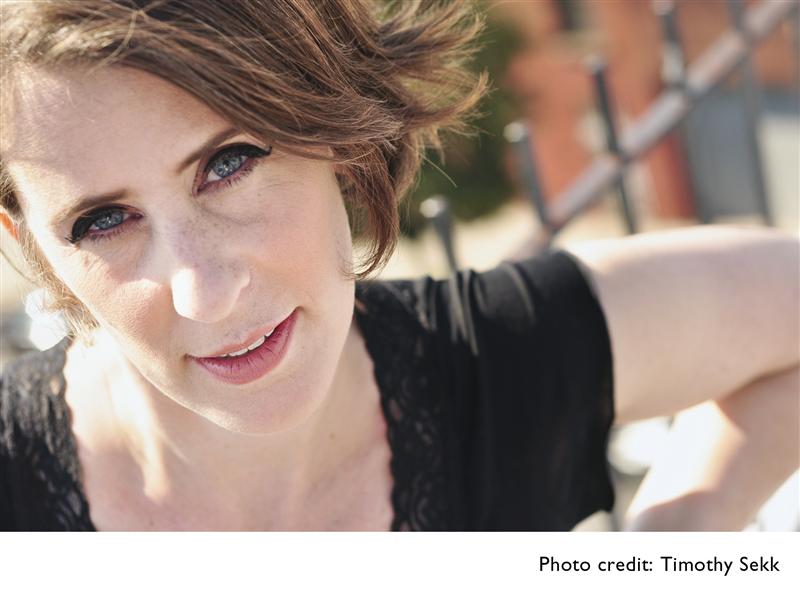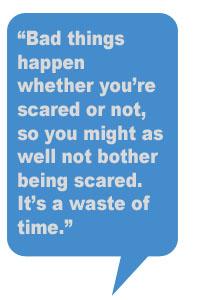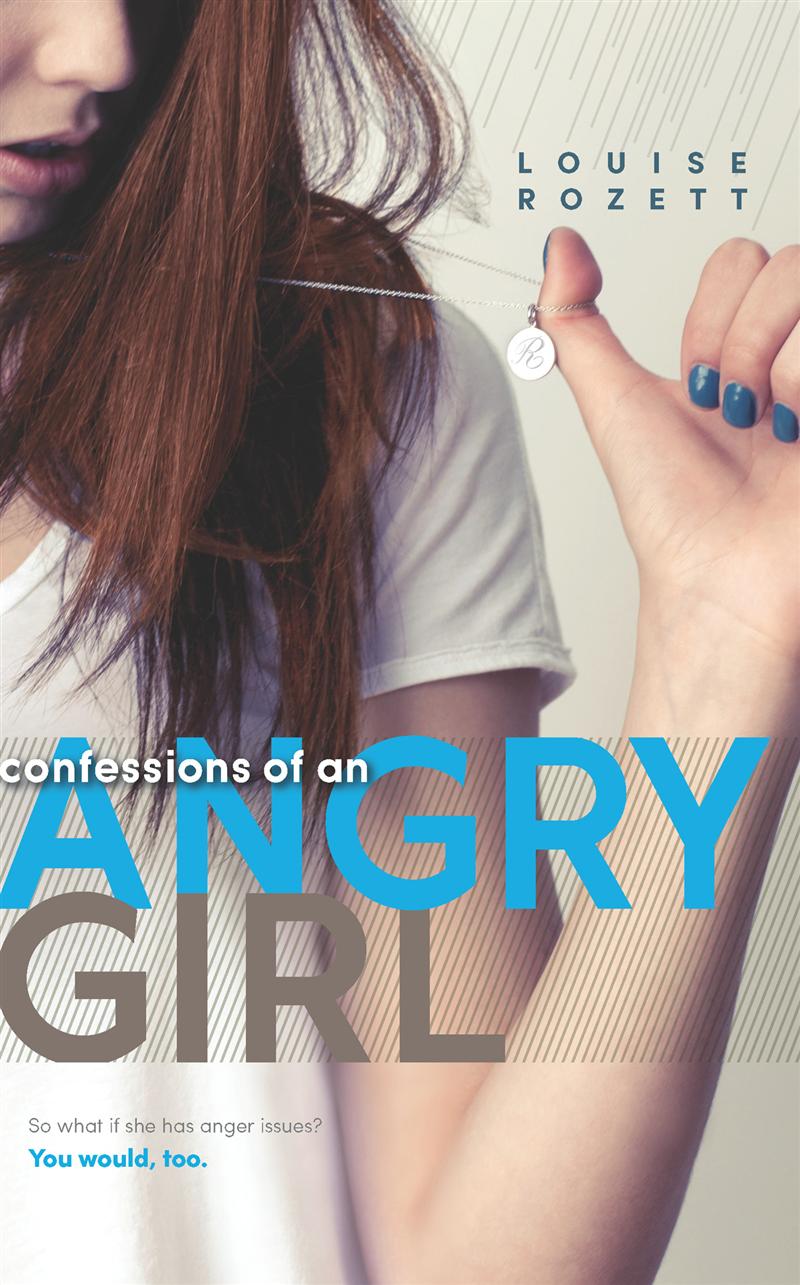In the frank and captivating Confessions of an Angry Girl, author Louise Rozett explores the powerful emotion of anger and how one high school girl expresses it. More on anger (and other things!) with the author below.

YOUNG ADULT: When did you decide to start writing?
LOUISE ROZETT: I started writing when I was a kid—I remember writing my first play when I was in elementary school. I loved writing right away—I was always totally thrilled whenever I got the chance to write creatively in class. I realized how important writing was to me in high school, and I kept doing it even as I pursued degrees in psychology and acting. After grad school, I spent time in New York doing musical theatre, but there were things about a performer’s life that I just couldn’t live with, and I decided to revisit my love of writing. So it wasn’t until I decided I needed a career change that I realized my next move was to focus on writing full time, for the first time in my life.
YA: Tell us a little bit about your latest work.
LR: Confessions of an Angry Girl is about Rose Zarelli, a high school freshman with some serious rage. She’s having a tough year because her father lost his job and took work as a contractor in Iraq, and was killed. On top of that, she likes the “wrong” guy, his scary girlfriend is now her nemesis, and her best friend is suddenly talking about losing her virginity. Rose isn’t ready for many of the issues that arise in high school—especially not while she’s learning how to deal with grief—and she finds herself without a support system at a crucial moment. It really makes her angry.
| Did you enjoy this article? Leave a comment below! And check out all of the great new content from YA Magazine on young adult books, top teen novels, young adult TV shows, movie casting news, young adult literature, and more! Follow us on Twitter, Facebook, and Instagram. |
YA: What are some of the qualities in your latest work that set it/you apart from what’s currently out there on the market?
LR: I really loved high school, but I wasn’t prepared for the big issues that came up—and in fact, I think most people aren’t prepared for them. But of course, for some, those new social experiences make high school exciting while for others they make life a total nightmare. I was interested in exploring who thrives and who struggles, and what happens when friends navigate those kinds of issues differently, as Rose and her best friend Tracy, do. I’m interested in delving into issues of sex and virginity, and alcohol, and bullying, but I’m also interested in giving my readers some real information—for instance, there’s a scene where Rose visits the gynecologist for the first time, and there’s also a frank discussion about STDs in health class—as well as a good story about what is a very profound time in life for many people. Hopefully the two blend together pretty seamlessly.
YA: The vibe of Confessions of an Angry Girl is different, with language on the jacket that is very distinctive and indeed, angry. What was the impetus behind this decision?
LR: I’ve always been interested in how girls feel and express anger, probably because it took me a long time to understand that I was allowed to be angry. I think girls are taught that they are supposed to be nice and accommodating all the time. But that’s a pretty terrible lesson to teach half the world’s population. Being nice and accommodating have their place, of course, but anger is a really important emotion—if handled correctly, it can be extremely constructive. If handled incorrectly, by, say, bottling it up, it can be quite destructive. So it was important to me that the book announce itself right up front as a story of strong emotion, and that the character of Rose makes it very clear what she’s going through and how she’s feeling on the back cover.
| Who would you count among your strongest influences, and why? LR: I know everyone says this, but the great Judy Blume had a major effect on me as a teenager. She was writing about issues that I was both curious about, and frightened by, and I turned to her books again and again for information, particularly emotional information. I wanted to know what it might feel like to get your period, or have sex for the first time, and that information wasn’t available to me anywhere else. I could get the practical information elsewhere, but not the emotional information. For that, I turned to the wonderful characters Judy Blume created, characters that I would venture to say most YA writers still carry around in their heads as adults. When I set out to write a YA book, Judy Blume was my gold standard in terms of how she bypassed the adult world and connected directly with her readers, knowing exactly what it was they wanted to read about. |
 |
If you could cast the Dream Film Adaptation of your work, who would you cast?
LR: Ooh, I really love this question! Thank you so much for asking! I’m actually on a blog tour right now, and one of my guest posts is called “Confessions of a Closet Casting Agent.” (I’ve always dreamed of working in casting—I think I’d be good at it!) I spent hours agonizing over casting my leads, but I finally settled on my dream cast. Here is the list, as it stands now:
Rose: Chloe Grace Moretz (Kick-Ass; Diary of a Wimpy Kid; Hugo)
Jamie: Jeremy Sumpter (Friday Night Lights; Soul Surfer)
Tracy: Miranda Cosgrove (iCarly)
Regina: Elizabeth Gillies (Victorious)
I also must confess to having a Pinterest board called “Who Should Play Jamie Forta in Angry Girl?” where people are casting their votes by clicking “like,” or re-pinning. It’s so fun—I check it constantly to see who’s getting the most love.
Do you have pursuits outside of young adult fiction?
LR: I am also a playwright—I love writing for theatre. I have a fantastic collaborator—the actress/director Tracy Middendorf—and we did a play together last summer at the New York International Fringe Festival about the effects of the recovery effort at Ground Zero on the recovery workers and their families. We usually have weekly meetings to discuss our next endeavor, but Tracy’s been away this summer shooting a Bruno Barreto film called The Art of Losing about the poet Elizabeth Bishop. I really miss her — she’s a big source of inspiration for me. When she gets back, we’re going to start working on a screenplay together.
